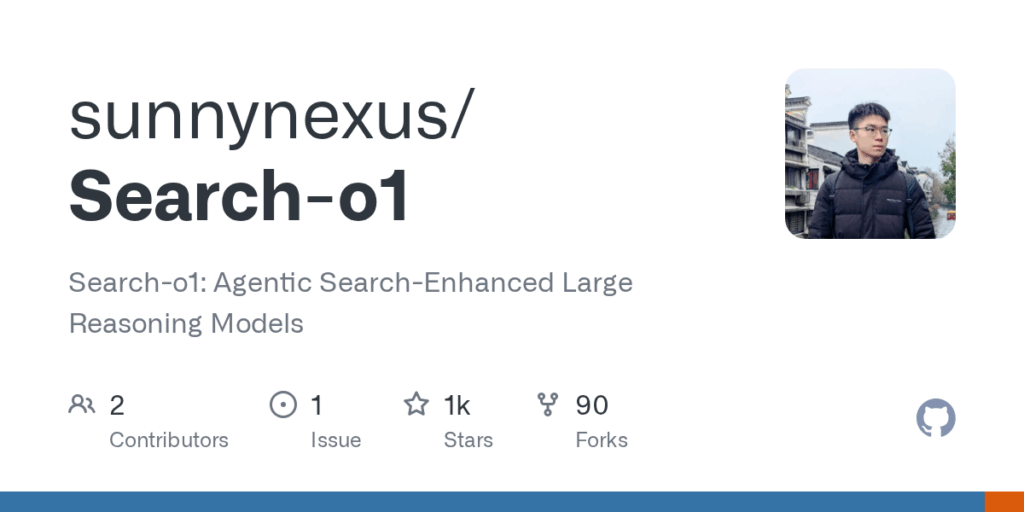Search o1
Basic Information
Search-o1 is a research and implementation repository that augments Large Reasoning Models (LRMs) with an agentic retrieval-augmented generation pipeline and a Reason-in-Documents module to reduce knowledge gaps during long, stepwise reasoning. The project provides code, data preprocessing notebooks, inference scripts and evaluation tools so researchers can apply Search-o1 to a range of challenging reasoning and open-domain QA benchmarks. It demonstrates a batch generation mechanism with interleaved search that detects when a model needs external information, issues search queries, fetches and refines documents, and reintegrates evidence into ongoing reasoning chains. The repository includes setup instructions, example commands for different inference modes, dataset preprocessing guidance and a backoff evaluation strategy for retrieval-based outputs.








